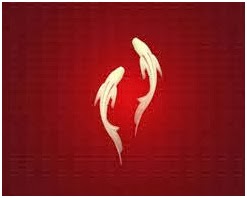MIRRORS
MYTH: They are believed to reflect, absorb, cure, and/or redirect all negative energy.
FACT: This is probably the most widely practice “cure” of negative feng shui. Can a mirror symbolically reflect things? Yes. Can mirrors enhance the perception of a small space and dark space? Yes. Can mirrors add a decorative effect to a space? Yes. If we look at this scientifically however, mirrors only reflect light, which is a very small part of the world of physics. Energy is in and around everything and cannot be totally redirected because of a reflective surface.
BALANCE: The symbolism used with reflection is very positive. Mirrors used to enhance an interiors size perception, create a specific ambiance, or added as a decorative feature are also very positive. Mirrors are not “the aspirin of feng shui” as someone once said but should and could be used as a tool to symbolically reflect aspects of life, relationships, prosperity, self-empowerment, etc. Most importantly though it must feel right to you, suit the space, and the décor of the home.
MYTH: They are believed to reflect, absorb, cure, and/or redirect all negative energy.
FACT: This is probably the most widely practice “cure” of negative feng shui. Can a mirror symbolically reflect things? Yes. Can mirrors enhance the perception of a small space and dark space? Yes. Can mirrors add a decorative effect to a space? Yes. If we look at this scientifically however, mirrors only reflect light, which is a very small part of the world of physics. Energy is in and around everything and cannot be totally redirected because of a reflective surface.
BALANCE: The symbolism used with reflection is very positive. Mirrors used to enhance an interiors size perception, create a specific ambiance, or added as a decorative feature are also very positive. Mirrors are not “the aspirin of feng shui” as someone once said but should and could be used as a tool to symbolically reflect aspects of life, relationships, prosperity, self-empowerment, etc. Most importantly though it must feel right to you, suit the space, and the décor of the home.
CRYSTALS
MYTH: Crystals cure everything!
FACT: All stones, gems and crystals have healing effects and benefits. For centuries different cultures and civilizations throughout the world have utilized, studied, and prescribed these natural resources as an elixir and healer of physically, emotionally, mentally troubling problems of life.
MYTH: Crystals cure everything!
FACT: All stones, gems and crystals have healing effects and benefits. For centuries different cultures and civilizations throughout the world have utilized, studied, and prescribed these natural resources as an elixir and healer of physically, emotionally, mentally troubling problems of life.
BALANCE: Understanding each precious property can be used to amazingly shift and transform energy. However, much care should be taken in regards to placement, caring for, and cleansing them. Like all the things they hold energy and need to be recharged and revitalized. Hanging crystals do not cure everything if you don’t understand and believe in the power all gems, stones, and crystals have.
DIRECTION
(North, South, East & West)
MYTH: Everything in a home must be arranged according to global direction—north, south, east, and west--- and if it’s not bad things can happen!
FACT: Due to the lack of electricity and technology over 3,000 years ago when feng shui was founded, optimizing direction of placement was crucial. Knowing that a home facing east would have part of the home warmed from the sun at a certain time of the day and the other part cool in the night, was highly beneficial. Most often bedrooms were set in the west because as the sun set it would warm these areas last.
BALANCE: Very logical and understandable, but to try and apply direction, let alone get an accurate compass reading due to the huge amounts of EMF’s (electro-magnetic frequencies) in urban areas is impractical. Within interiors today, and the size and shape of the most rooms, your furniture placement would like quite funny if all you followed were direction placement.
MYTH: Everything in a home must be arranged according to global direction—north, south, east, and west--- and if it’s not bad things can happen!
FACT: Due to the lack of electricity and technology over 3,000 years ago when feng shui was founded, optimizing direction of placement was crucial. Knowing that a home facing east would have part of the home warmed from the sun at a certain time of the day and the other part cool in the night, was highly beneficial. Most often bedrooms were set in the west because as the sun set it would warm these areas last.
BALANCE: Very logical and understandable, but to try and apply direction, let alone get an accurate compass reading due to the huge amounts of EMF’s (electro-magnetic frequencies) in urban areas is impractical. Within interiors today, and the size and shape of the most rooms, your furniture placement would like quite funny if all you followed were direction placement.





